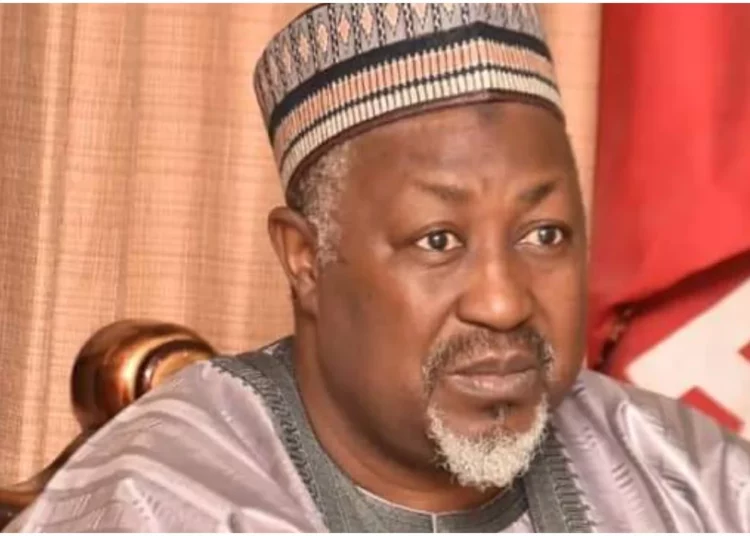Minister of Defence Mohammed Badaru Abubakar has underscored the importance of strategic defence management as a crucial instrument for safeguarding national sovereignty, maintaining peace, and fostering socioeconomic development.
He stated this in lecture, titled “Strategic Defence Management in Nigeria: Ministry of Defence in Perspective,” at the National Defence Academy Course 33 in Abuja on Friday.
Badaru in a statement his personal assistant on media and publicity, Mati Ali commended President Bola Ahmed Tinubu for prioritizing security development in Nigeria.
He outlined the ministry’s pivotal role in addressing the country’s evolving security challenges through institutional reforms, strategic planning, and collaborative defence mechanisms.
He emphasized the complexity of Nigeria’s current security environment, characterized by the interplay of various actors, including state forces, insurgents, civil society, the media, and foreign interests, all operating within a volatile regional and global context.
He reiterated that effective strategic defence management is essential not only for preserving sovereignty and peace but also for driving socioeconomic progress.
He said that with a population exceeding 200 million and a dynamic economy, Nigeria is confronting a wide array of security threats, including insurgency in the North-East, banditry and communal violence in the North-West and North-Central, secessionist movements and oil theft in the South, as well as maritime insecurity in the Gulf of Guinea.
The Minister also highlighted the impact of regional instability in the Sahel and Nigeria’s leadership role within ECOWAS and the African Union in shaping national defence policies.
The Minister praised President Tinubu’s administration for recognizing the strong connection between national security and development.
He noted ongoing reforms aimed at recalibrating Nigeria’s security architecture through capacity building, military modernization, and investment in local defence production.
According to him, the success of these reforms significantly depends on the effectiveness of the Ministry of Defence as the apex body for military oversight and strategic coordination.
Highlighting the core responsibilities of the Ministry of Defence, Badaru explained that it is tasked with formulating and executing the National Defence Policy, ensuring the readiness of the Armed Forces, and driving strategic initiatives that integrate defence planning, policy, and resource management. He stressed that efficient defence management must be grounded in forward-looking frameworks aligned with both national interests and global realities.
In conclusion, the Minister reaffirmed the Ministry of Defence’s commitment to enhancing operational efficiency, strengthening transparency, and promoting multi-sectoral partnerships. He advocated for a whole-of-government and whole-of-society approach to security, integrating military, economic, and diplomatic strategies to safeguard Nigeria’s territorial integrity and protect citizens from internal and external threats.
In his remarks, the Commandant of the National Defence College, Rear Admiral James Ohimai Okosun, expressed gratitude to Minister Badaru for delivering a timely and insightful lecture, describing it as essential for shaping the future of military leadership.
He also commended the ongoing reforms under the Minister’s leadership, noting that they are setting new standards in defence governance and institutional efficiency.
We’ve got the edge. Get real-time reports, breaking scoops, and exclusive angles delivered straight to your phone. Don’t settle for stale news. Join LEADERSHIP NEWS on WhatsApp for 24/7 updates →
Join Our WhatsApp Channel










